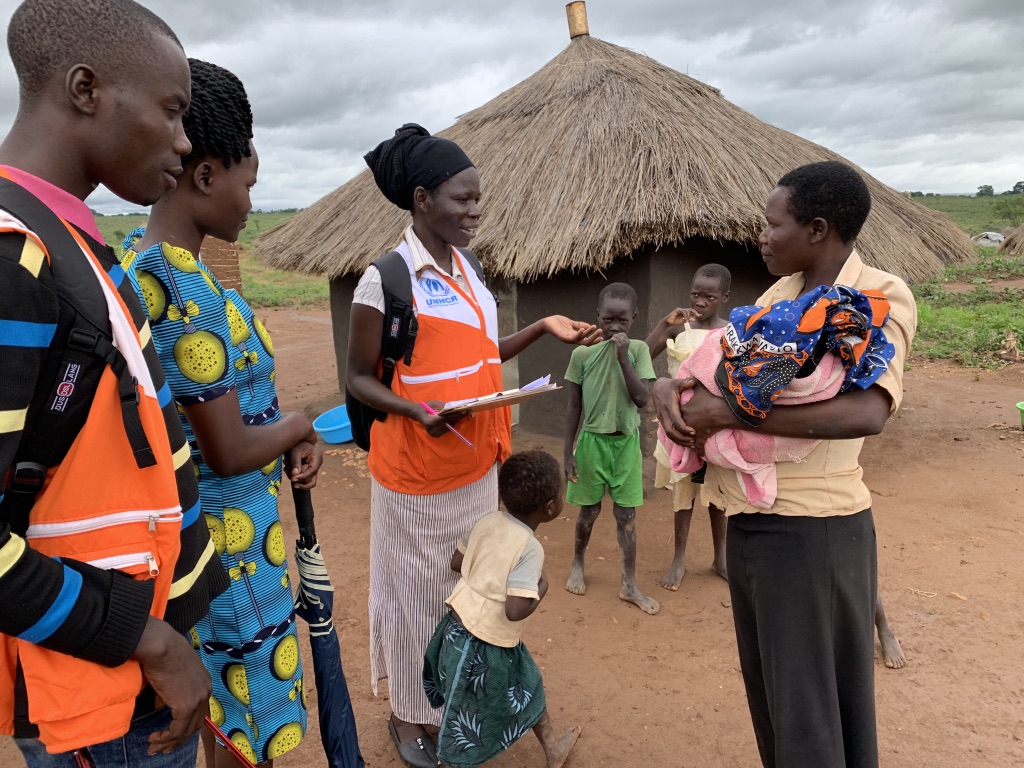Shaping the future: Our strategy for research and innovation in humanitarian response.

Shaping the future: Our strategy for research and innovation in humanitarian response.


Effective coordination among humanitarian partners and provision of quality health services in refugee settlements depends on the availability and use of reliable information. Typical programme monitoring approaches cannot measure gaps in access or utilisation of health services within a refugee settlement.
Our work in northern Uganda addresses these shortcomings, providing accurate information on the coverage of primary health services in both refugee settlements and nearby host communities.
In northern Uganda, we are focusing on the West Nile region. It is a continually growing humanitarian setting with nearly 1 million refugees from neighbouring South Sudan.
We are using a rapid household survey approach called lot quality assurance sampling (LQAS). LQAS methodology provides real-time planning and management information. It uses small sample sizes to classify health or administrative geographical areas, to inform if these areas have achieved or not a pre-determined target for a given indicator.
We are using LQAS and qualitative methods in two districts to assess the health status and behaviours of refugees living in long-term settlements, compared to the resident Ugandan populations in nearby host communities. We have previously used LQAS in displaced persons camps in post-crisis South Sudan. Northern Uganda is a new target population, new geographical area and new use of the approach in a mixed method setting which allowed us to better understand and prioritise findings that are important to humanitarian partners in West Nile.
Our results uncovered important gaps in the West Nile Refugee Response programme despite significant investments in the region over the past five years.
The majority of health indicators we measured did not reach current UNHCR Emergency standards for refugee communities or otherwise were unacceptably low.
For example, despite high antenatal care attendance, essential services to prevent maternal morbidity during pregnancy were very low (e.g. tetanus vaccination and malaria prophylaxis for pregnant women). In addition, postpartum care was almost non-existent for both mother and infant.
While large investments have been made into food aid for refugee communities, both dietary diversity and variety were unacceptably low, in particular among young refugee children. Similarly, while access to safe water and improved latrines was high in refugee communities, hygiene practices were poor despite high prevalence of childhood diarrhoea.
In general, our findings revealed potentially weak coordination among partners in West Nile and poor delivery of basic maternal and child health services.
Our next steps are to share findings with humanitarian stakeholders and a wider development audience to promote an exchange of knowledge and evidence about humanitarian interventions in long-term refugee settings.
We intend to trigger an important debate about the need for increased attention on routine monitoring of humanitarian programming for primary health care in refugee-hosting districts of Uganda.
Feature Photo: Conducting a Household Survey. Credit: Nancy Vollmer.

 Please upgrade your browser
Please upgrade your browser
You are seeing this because you are using a browser that is not supported. The Elrha website is built using modern technology and standards. We recommend upgrading your browser with one of the following to properly view our website:
Windows MacPlease note that this is not an exhaustive list of browsers. We also do not intend to recommend a particular manufacturer's browser over another's; only to suggest upgrading to a browser version that is compliant with current standards to give you the best and most secure browsing experience.